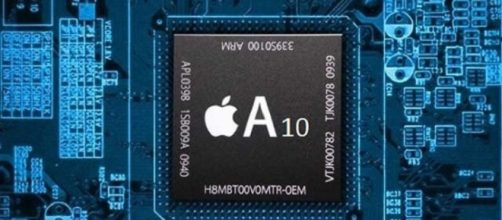Samsung Electronics may once again develop the chips that Apple houses inside its iPhones. A new report indicates that in 2018, Samsung will be developing the A12 SoCs housed in the future handsets from the Cupertino-based company. This deal between Samsung and Apple comes after the South Korean company lost a similar deal to its competitor TSMC, back in 2013.
Samsung to create 7nm A12 chipsets for Apple
The upcoming A11 chipset which is believed to be powering the impending iPhone 8 is based on the 10nm architecture. This new form of SoC is said to increase battery life, while at the same time improve the efficiency of the whole smartphone.
However, Apple is planning for even greater performance boosts, which is why the latest reports indicate that the A12 chipset would be based on the revolutionary 7nm architecture.
Reports also claim that Samsung has just bought extreme ultraviolet lithography machines, which are state-of-the-art chip making equipment. These machines are vital for the production of a 7nm chipset for the iPhones in the near future. However, a question now arises whether the company would use the same equipment to create 7nm chips for its own handsets, which are known to compete with Apple’s iPhones.
One of Samsung’s three co-CEOs Kwon Oh-hyun is being credited with clinching the deal with Apple. He is in charge of the chip making side of the business and visited Apple headquarters last month.
It is believed that this visit is what helped the South Korean company to make the deal with the Cupertino-based organization. Samsung already maintains close ties with Apple due to the former being the only supplier of OLED display panels for the upcoming iPhone 8.
Why TSMC lost the deal for next year
TSMC managed to clinch the deal of chip making for Apple’s iPhones back in 2013, and the next year, it adopted the 7nm technology faster than its competitors. However, this time the company lost out on the deal to Samsung. This may be because the South Korean company was able to convince Apple that it would be far better to rely on Samsung for both the OLED, which the company is already supplying and the advanced chipset.
Samsung will now complete its own testing of the 7nm chipset and the performance that the company can get out of these processors. Apple will then have to sign off on the development after which Samsung will be able to begin production of the chips for next year’s iPhone handsets. One thing is certain though, Samsung’s revenue just got a big boost with this deal.


